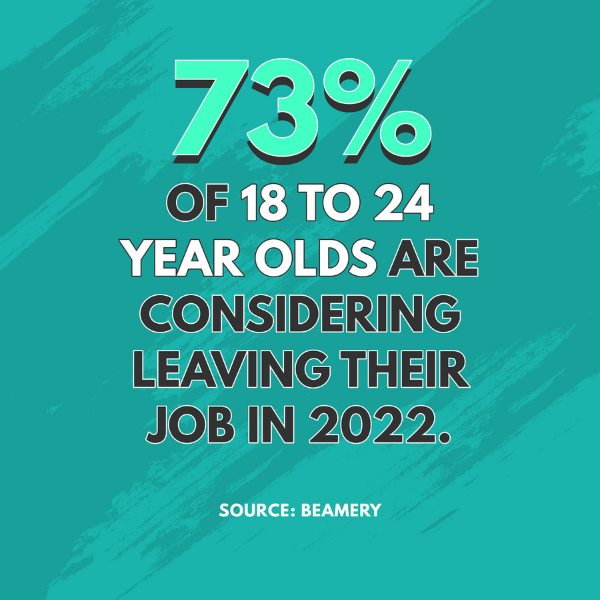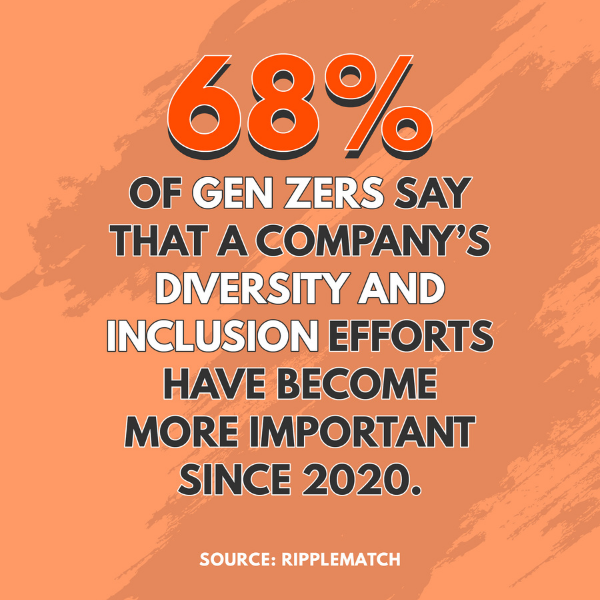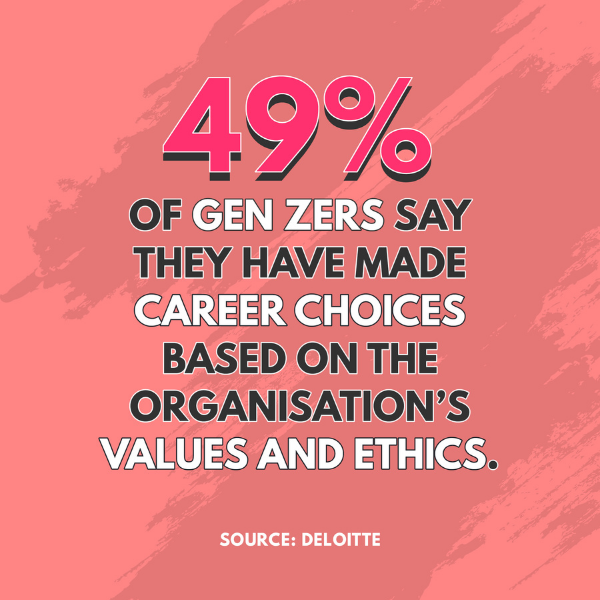Three ways marketers can better engage Gen Z talent

- 26 April 2022
Openly championing issues like climate change, social equality, and mental health, combined with being ambitious and tech-savvy, puts the spotlight on Gen Z - those born between 1997 and 2012 - as a disruptive force in the world of work. MaryLou Costa looks at what senior marketers need to understand about this generation to get the best out of them as highly valued team members.
Expected to make up 27% of the global workforce by 2025, Gen Z is an important talent pool that senior marketers must work hard to attract, engage and retain, especially with statistics showing that 73% of 18 to 24-year-olds are considering leaving their job in the next 12 months. 82% are confident they’ll be able to find a new job - and 20% already have one lined up.
This highlights a new approach to work not just driven by the Great Resignation, but by a greater desire to reconcile a heightened personal sense of purpose with a company’s own values and vision. For example, 49% of the 8,273 Gen Zers Deloitte surveyed say they have made choices on their career path and employers they’d like to work for based on the organisation’s values and ethics.
There’s a lot at stake, then, for senior marketers who are increasingly reliant on Gen Z to bring a fresh perspective on social issues. Including their digital native qualities that see them feel right at home on platforms like TikTok and in the burgeoning world of the metaverse. Here are three ways senior marketers can get closer to Gen Z talent.
Bringing purpose to life
With 68% of Gen Zers saying a company’s diversity and inclusion efforts have become more important to them in the wake of social justice protests in 2020, combining “purpose and paycheck” is the new normal for this generation, reveals Afdhel Aziz, co-founder of global purpose consultancy Conspiracy of Love.
“Top talent is looking for meaning, not just money, as a key driver of where they choose to work. For companies who want to attract that talent, it’s essential they show how their work can ladder up to something more impactful than a quarterly profit goal,” says Aziz.
“Especially when it comes to millennials and Gen Zers, the two generations now entering and dominating the workforce, they need to know that their work matters - that they are leaving behind a legacy that they can be proud of.”
Aziz gives the example of outdoor clothing brand Patagonia as one whose sustainability values regularly form part of its marketing and campaigning activities - resulting in it attracting over 9,000 applications on average for every full-time job and internship.
But few firms succeed at conveying a genuine purpose that teams from all demographics can buy into, notes Matthew Neale, director of client services at talent strategy consultancy, Chemistry. More often than not, the authenticity companies strive for remains skin deep, with a weak level of investment across an organisation, Neale assesses.
“Somebody recently said to me, ‘It now feels too dangerous to go to market, either customers or employees, without an authentic purpose at your side, whereas five years ago, you didn't have to do that. The purpose of a company like GE, for example, was to be first and second in each industry in which it competed. It didn't need a purpose beyond that,” he says.
Understanding Gen Z’s relationship with the digital world
The creativity and innovation Gen Z thrive on is a huge asset for senior marketers, who need to embrace and understand their motivations and ambitions, and how these converge on digital platforms, says Laura Brennand-Carter, who is also part of Chemistry, in the role of client partner and US office head.
“More of the younger generations have this opportunity to create wealth in different ways that don’t necessarily rely on the ‘productive economy’, which is all about how much you do, how present you are, your activity levels. It’s about a different type of output now,” Brennand-Carter says.
“When you see how people are making money through cryptocurrency, NFTs, digital content platforms, and the metaverse, there’s a whole shift in how this population of people is going to be engaging with money, with each other, and with work. These people are creating a whole new economy that could blow up.”
Senior marketers that fail to question how this may influence their own Gen Z talent risk facing challenges engaging this demographic, Brennand-Carter warns.
Building empathy to support mental health issues
31% of Gen Zers expect their employer to offer paid mental health days in support of work-life balance. Yet managers and leaders still need to up their mental health awareness. When mental health platform Unmind recently surveyed 1,500 HR decision makers, it found that 75% call out the C-suite, senior leadership and people managers as the level of business where mental health awareness needs the most improvement.
Leaders must recognise the critical role they play in impacting people's mental health and supporting them with that, which makes a difference, too, on satisfaction and loyalty, Chemistry’s Brennand-Carter notes.
“You might be part of the maturing workforce, where some of the mental health issues that the younger generation might be facing today just might be things that you don't feel equipped to deal with and cope with from a support perspective,” Brennand-Carter says.
“Never has it been more important to understand the people that you have - what they care about, what they don't care about, what energises and de-energises them, because energy, whether we like it or not, is something people are really focusing on now.”
Want to create captivating content to help you better engage Gen Z? Don't miss our member exclusive webinar: 'Common content marketing mistakes you should avoid' with marketing expert, Chris Lee, on Wednesday 27 April.
Not yet a CIM member? Join today to access exclusive content to support your career, and work towards Chartered marketer status.

- 0 views

 FAQs
FAQs
 Log in
Log in
 MyCIM
MyCIM









